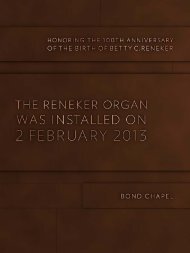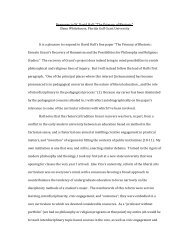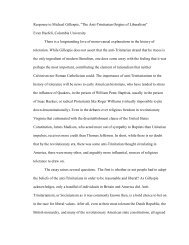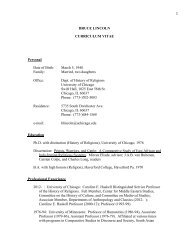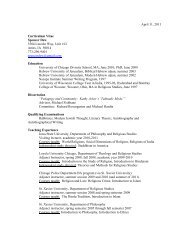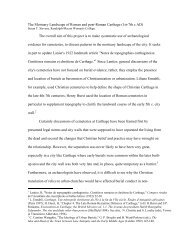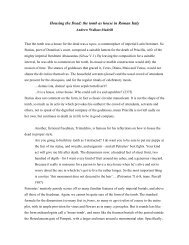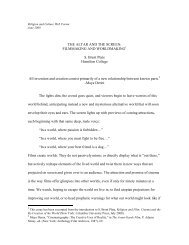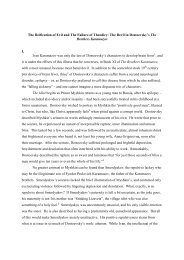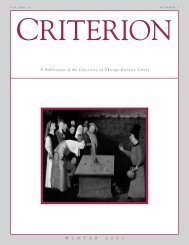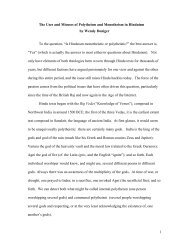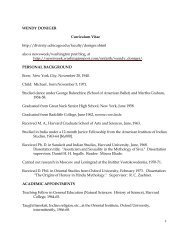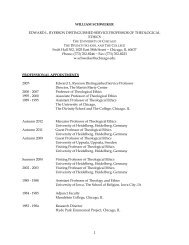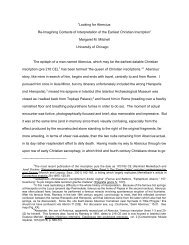Gregory Thaumaturgus - Divinity School - University of Chicago
Gregory Thaumaturgus - Divinity School - University of Chicago
Gregory Thaumaturgus - Divinity School - University of Chicago
Create successful ePaper yourself
Turn your PDF publications into a flip-book with our unique Google optimized e-Paper software.
consternation (ἔκπληξις) to the people who ran the place” 26 on the basis <strong>of</strong> his unprecedented survival <strong>of</strong><br />
a nighttime bath. These people are not just shocked witnesses; instead, they seem to be assimilated to a<br />
larger group when <strong>Gregory</strong> immediately writes about other miraculous events that had taken place in the<br />
city. The deacon runs around to consult others who have experienced miracles firsthand, all <strong>of</strong> them<br />
miracles that the Wonderworker had predicted from far <strong>of</strong>f. This reporting role is crucial for the<br />
preservation <strong>of</strong> any records about <strong>Thaumaturgus</strong>’ and others’ spiritual power, and Nyssen’s narrative seems<br />
to take it for granted that people who saw wonders would willingly testify about them. After finding out as<br />
much as he can about other wonders the Teacher knew about, the deacon eventually reports back to<br />
<strong>Thaumaturgus</strong>, <strong>of</strong>fering in his own person a living testimony to the idea that believers ought to flock to<br />
powerful spiritual teachers.<br />
The wider framing <strong>of</strong> the episode presents <strong>Gregory</strong> <strong>of</strong> Nyssa with another opportunity for<br />
characterization in his own narrative voice. Adopting the long historical view, he explains that the demonic<br />
encounter story should be read as a foundation narrative for an important ecclesiastical practice, that <strong>of</strong><br />
intercessory prayer. This very deacon “left to his own and to those to come later a common protection,<br />
namely, that each should commend himself to God through the priests.” 27<br />
So important was this<br />
contribution, the author argues, that “even now, throughout the church, but especially among them, the<br />
same saying (φωνή) is a memorial <strong>of</strong> the aid which helped that man then.” 28<br />
<strong>Gregory</strong> <strong>Thaumaturgus</strong><br />
becomes the spiritual model for a key element <strong>of</strong> priestly responsibility and authority, and <strong>Gregory</strong> <strong>of</strong> Nyssa<br />
extends to the whole Church the promise that the Wonderworker’s spiritual victory can be re-enacted.<br />
All <strong>of</strong> these characterization techniques – direct description <strong>of</strong> the subject, the narrator’s framing <strong>of</strong><br />
events, the assessments and reactions <strong>of</strong> other characters – work together to set up a further interpretive<br />
task, a task that belongs to the reader. It seems that the reader has been asked to put herself in the shoes <strong>of</strong><br />
26 VGT 94, Migne 952<br />
27 VGT 94, Migne 953<br />
28 VGT 94, Migne 953



